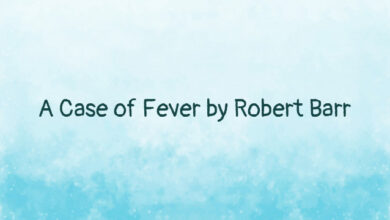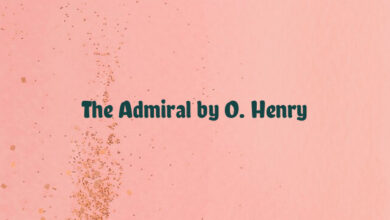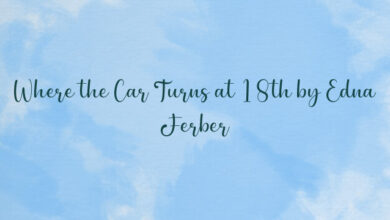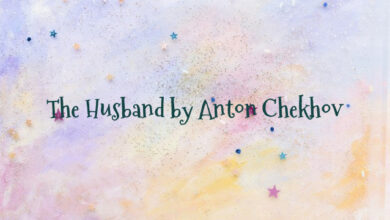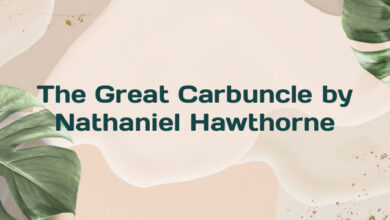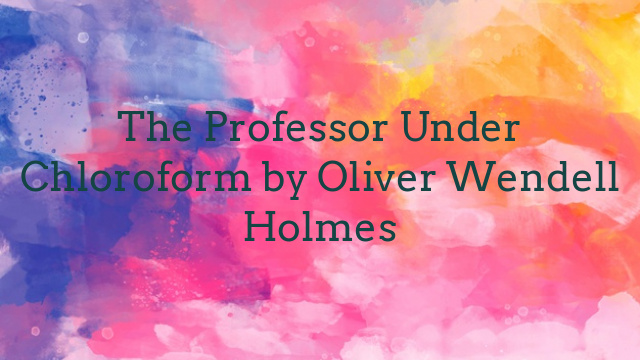
The Professor Under Chloroform by Oliver Wendell Holmes
The Professor Under Chloroform was published in The Humour of America (1909).
YOU haven’t heard about my friend the Professor’s first experiment in the use of anæsthetics, have you? He was mightily pleased with the reception of that poem of his about the chaise. He spoke to me once or twice about another poem of similar character he wanted to read me, which I told him I would listen to and criticise. One day, after dinner, he came in with his face tied up, looking very red in the cheeks, and heavy about the eyes. “Hy ’r’ ye?” he said, and made for an arm-chair, in which he placed first his hat and then his person, going smack through the crown of the former, as neatly as they do the trick at the circus. The Professor jumped at the explosion as if he had sat down on one of those small calthrops our grandfathers used to sow round in the grass when there were Indians about,—iron stars, each ray a rusty thorn an inch and a half long,—stick through moccasins into feet,—cripple ’em on the spot, and give ’em lock-jaw in a day or two. At the same time he let off one of those big words which lie at the bottom of the best man’s vocabulary, but perhaps never turn up in his life,—just as every man’s hair may stand on end, but in most men it never does. After he had got calm, he pulled out a sheet or two of manuscript, together with a smaller scrap, on which, as he said, he had just been writing an introduction or prelude to the main performance. A certain suspicion had come into my mind that the Professor was not quite right, which was confirmed by the way he talked; but I let him begin. This is the way he read it:
Prelude.
“I’m the fellah that tole one day
The tale of the won’erful one-hoss shay.
Wan’ to hear another? Say,—
Funny, wasn’t it? Made me laugh,—
I’m too modest, I am, by half,—
Made me laugh ’s though I sh’d split,—
Cahn’ a fellah like fellah’s own wit?—
Fellah’s keep sayin’, ‘Well, now, that’s nice,
Did it once, but cahn’ do it twice,’—
Dön’ you believe thee ’z no more fat;
Lots in the kitch’n ’z good ’z that.
Fus’-rate throw, ’n’ no mistake,—
Han’ us the props for another shake;
Know I’ll try, ’n’ guess I’ll win;
Here sh’ goes for hit ’m ag’in!”
Here I thought it necessary to interpose. “Professor,” I said, “you are inebriated. The style of what you call your ‘Prelude’ shows that it was written under cerebral excitement. Your articulation is confused. You have told 84me three times in succession, in exactly the same words, that I was the only true friend you had in the world that you would unbutton your heart to. You smell distinctly and decidedly of spirits.” I spoke and paused; tender but firm. Two large tears orbed themselves beneath the Professor’s lids,—in obedience to the principles of gravitation celebrated in that delicious bit of bladdery bathos, “The very law that moulds a tear,” with which the Edinburgh Review attempted to put down Master George Gordon when that young man was foolishly trying to make himself conspicuous. One of these tears peeped over the edge of the lid until it lost its balance,—slid an inch and waited for reinforcements,—swelled again,—rolled down a little further,—stopped,—moved on,—and at last fell on the back of the Professor’s hand. He held it up for me to look at, and lifted his eyes, brimful, till they met mine. I couldn’t stand it,—I always break down when folks cry in my face,—so I hugged him, and said he was a dear old boy, and asked him kindly what was the matter with him, and what made him smell so dreadfully strong of spirits. Upset his alcohol lamp,—he said,—and spilt the alcohol on his legs. That was it. But what had he been doing to get his head into such a state—had he really committed an excess? What was the matter? Then it came out that he had been taking chloroform to have a tooth out, which had left him in a very queer state, in which he had written the “Prelude” given above, and under the influence of which he evidently was still.
